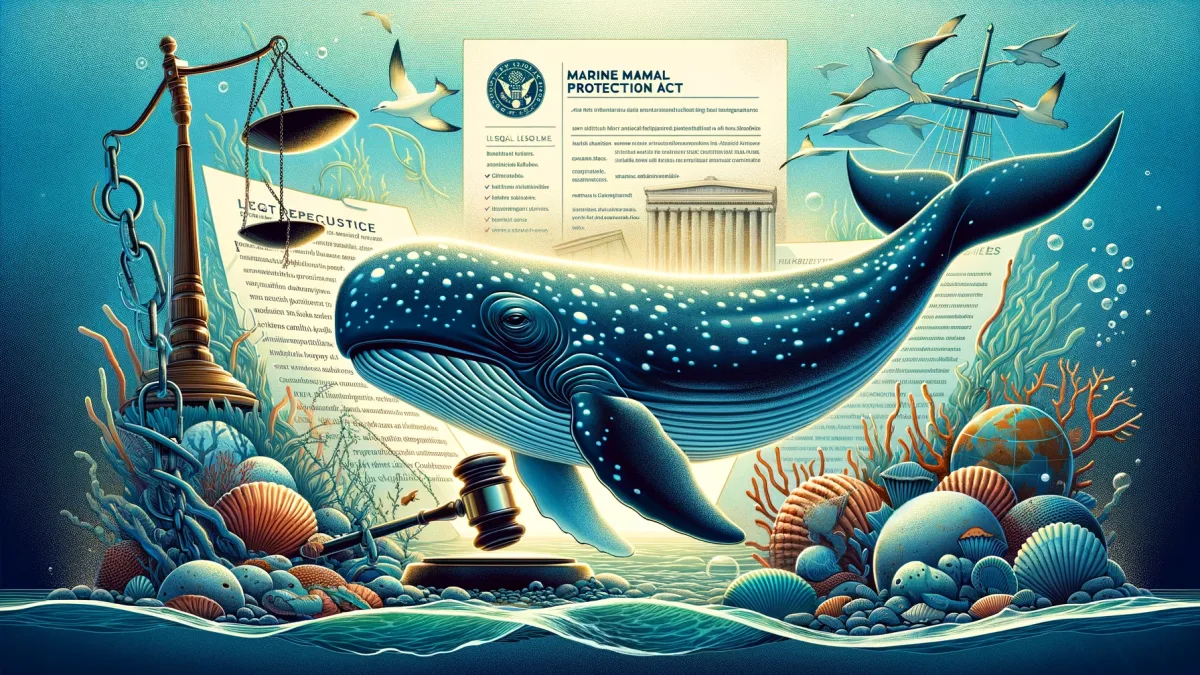Ambergris, often referred to as “floating gold,” holds a mystique unlike any other substance in the world. This rare and valuable byproduct of the sperm whale has been used for centuries in perfumery and as a flavoring agent. However, in the United States, the possession, sale, and trade of ambergris are subject to strict legal restrictions. As a legal professional with an interest in environmental law and wildlife protection, I aim to demystify the reasons behind the legal status of ambergris in the U.S., offering insights into the intersection of law, conservation, and commerce.
Understanding Ambergris
Before delving into the legalities, it’s essential to understand what ambergris is. Ambergris is a waxy substance that forms in the digestive system of sperm whales, believed to facilitate the passage of hard, indigestible objects. It is highly prized for its unique scent and longevity-enhancing properties in perfumery. Despite its value, the origins of ambergris — tied to the endangered sperm whale — cast a shadow over its desirability.
The Legal Framework: The Marine Mammal Protection Act (MMPA)
The primary legislation governing the legality of ambergris in the United States is the Marine Mammal Protection Act (MMPA) of 1972. The MMPA was enacted to prevent the decline of marine mammal populations to below their sustainable levels, emphasizing the protection of species like the sperm whale, which are vulnerable to human activities.
Why Ambergris Falls Under the MMPA
Ambergris is illegal in the U.S. primarily because it originates from the sperm whale, a marine mammal protected under the MMPA. The Act prohibits the “take” of marine mammals, a term that encompasses hunting, capturing, and harassment, as well as the trade in parts or products derived from them. Since ambergris is a byproduct of sperm whales, it falls within the scope of this prohibition, making its collection, sale, or possession illegal within the United States.
Conservation Concerns
The legal stance on ambergris is deeply rooted in conservation efforts. Sperm whales are classified as vulnerable by the International Union for Conservation of Nature (IUCN), facing threats from whaling, ship strikes, and entanglement in fishing gear. The MMPA seeks to mitigate these threats by controlling the market for whale-derived products, including ambergris. By restricting the trade in ambergris, the law aims to reduce the incentives for whaling and the incidental harm to sperm whales.
Ethical and Environmental Considerations
Beyond legal restrictions, the status of ambergris in the U.S. raises important ethical and environmental considerations. The debate over ambergris touches on broader questions about human interaction with wildlife and the impact of commercial interests on conservation. Many argue that respecting the MMPA’s provisions on ambergris is part of a larger commitment to protecting marine biodiversity and ensuring the ethical treatment of all creatures.
Alternatives and Innovations
In response to the legal and ethical issues surrounding ambergris, the perfume industry has turned to synthetic alternatives and other natural substances that mimic the properties of ambergris. These innovations offer a sustainable and legal option for achieving the desired effects in perfumery without compromising wildlife protection efforts.
Conclusion
The illegality of ambergris in the United States, as governed by the Marine Mammal Protection Act, reflects a broader commitment to marine conservation and ethical standards in commerce. While the allure of ambergris remains, the legal restrictions serve as a reminder of the importance of prioritizing the well-being of endangered species over commercial gain. As consumers and citizens, understanding the reasons behind these legal protections can help us make informed choices that support conservation and respect for wildlife.
In navigating the complexities of laws like the MMPA, it’s crucial to stay informed about the latest developments and to consult with legal professionals when questions arise. By doing so, we can contribute to the ongoing dialogue about conservation, ethics, and the law, ensuring a better future for our planet’s remarkable marine inhabitants.









Leave a Reply